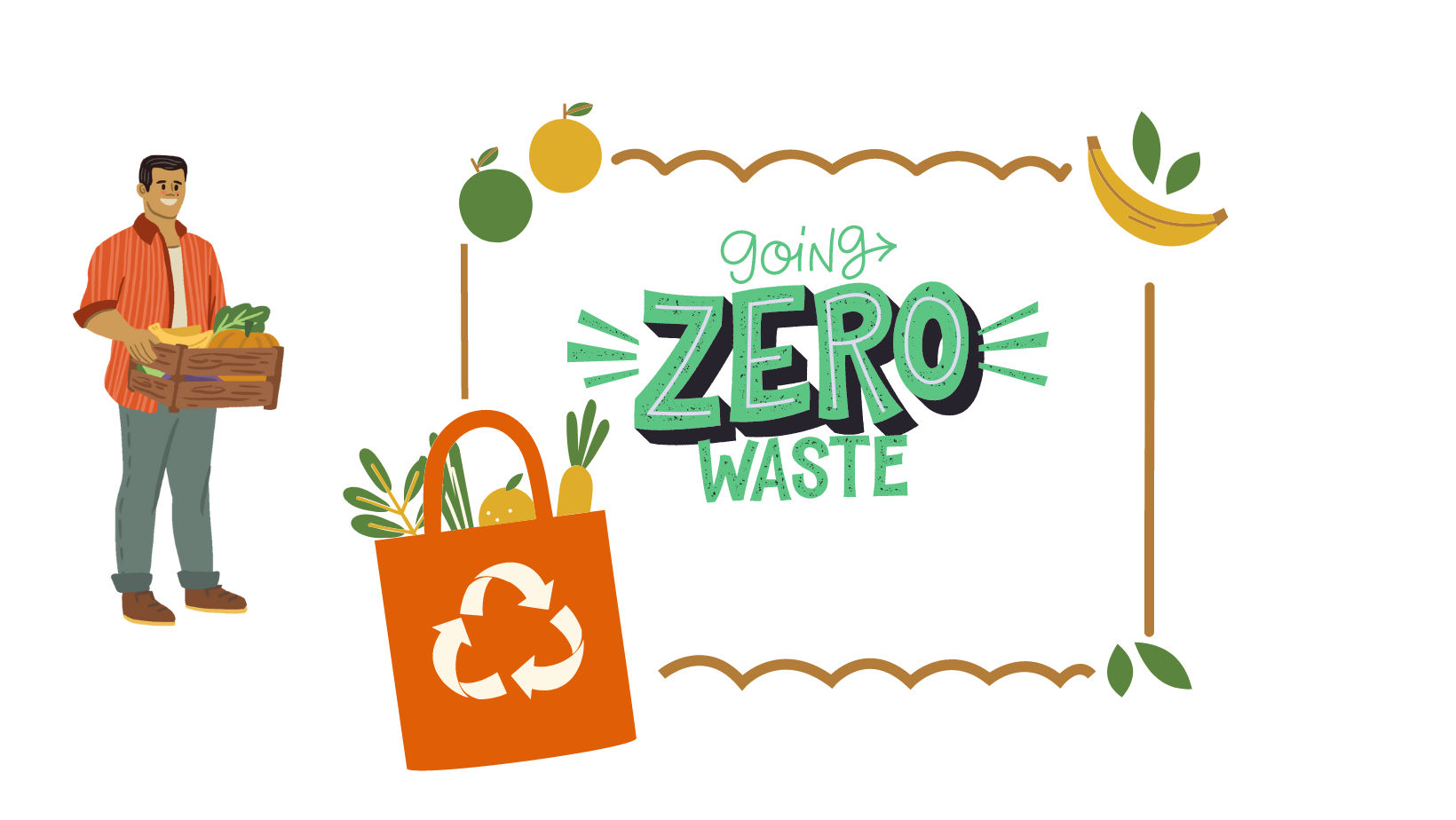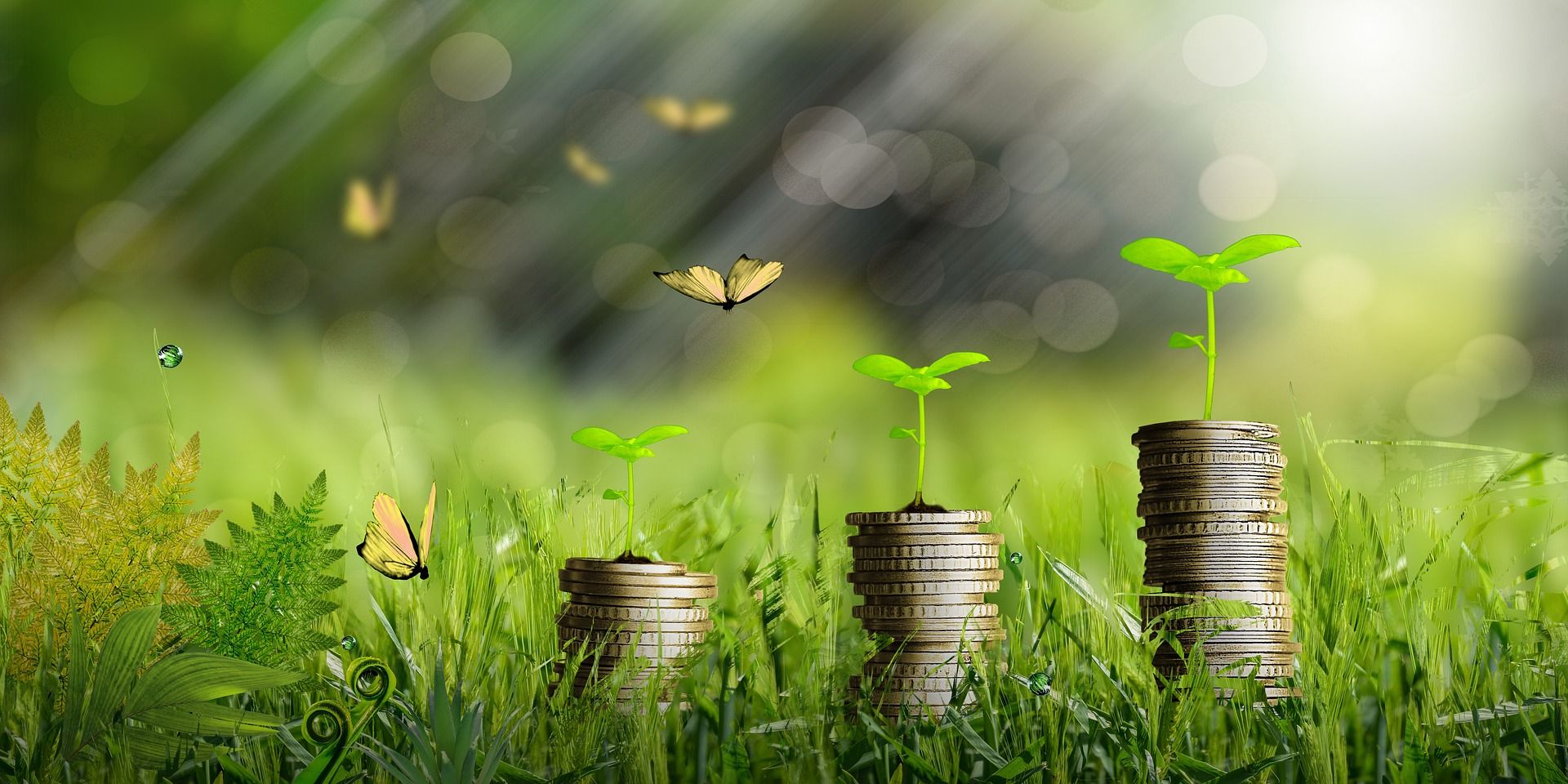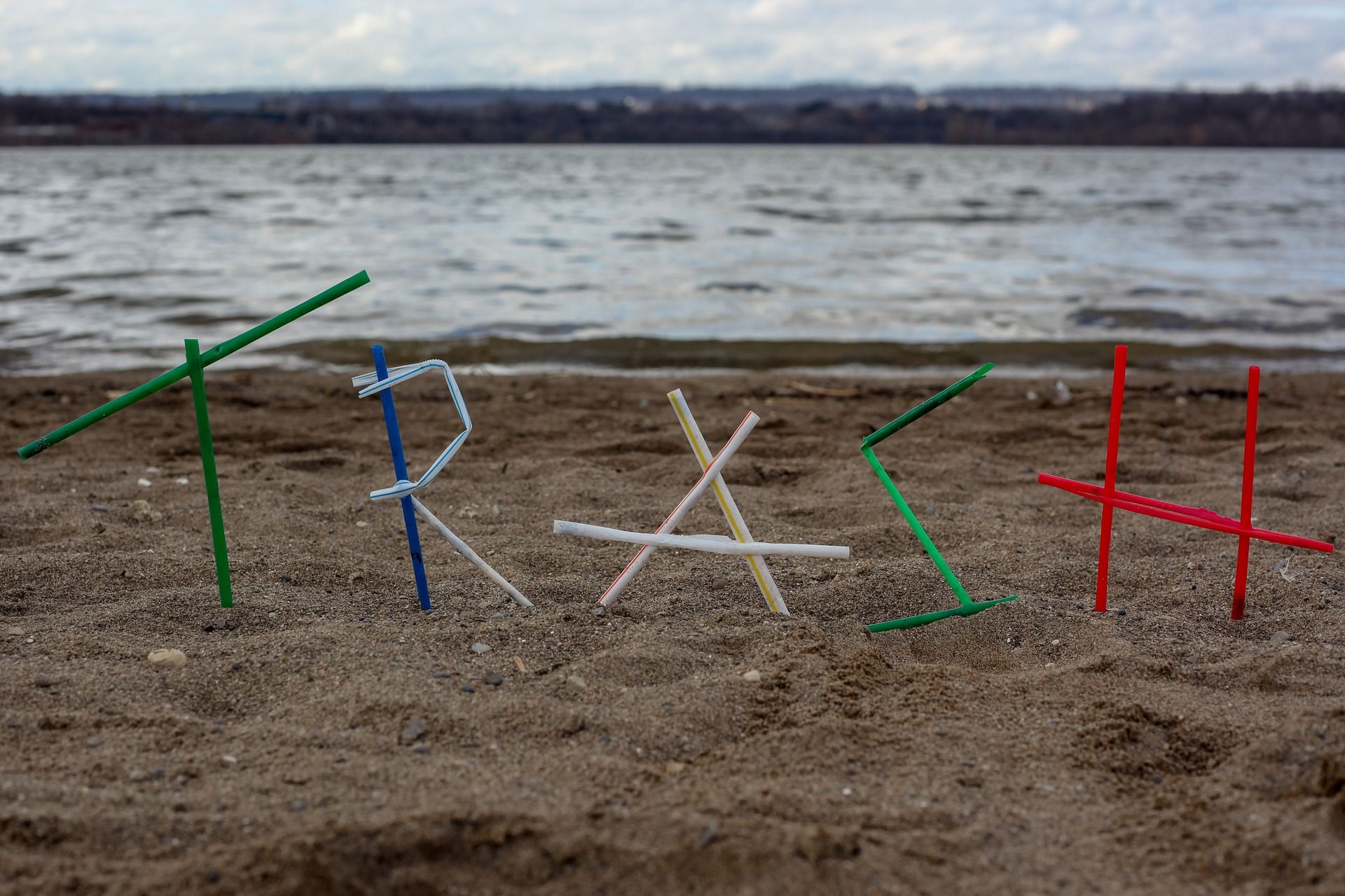March 30, 2023, marks the first-ever International Day of Zero Waste. The United Nations General Assembly (UNGA) adopted a resolution on December 14, 2022, to declare March 30 as the day to raise global awareness of the need for sustainable consumption and production patterns, adopting a circular economy at all levels.
So, why promote a zero-waste culture?
The Need to Shift from A Linear Economy to A Circular Economy
The world has mainly operated on a linear economy where we take resources, make products, and discard the waste produced. Massive waste production has led to the triple planet crisis of pollution, climate change, and biodiversity and nature loss.
Poor waste management significantly contributes to climate change. For example, Municipal Solid Waste is the third-largest source of methane emissions in the United States. Landfills emit landfill gas, which constitutes 50% methane gas and 50% carbon dioxide (CO2) gas. Methane gas is between 28 and 36 times more potent than CO2 in warming the planet.
A warmed-up planet's ripple effect is catastrophic in sensitive and high biodiversity ecosystems such as coral reefs. A warmer climate leads to warmer oceans that cause coral bleaching and increased infections.
The world lost 14% of coral reefs between 2009 and 2018. If nothing is done, we'll lose half of the world's reefs by 2035. Consequently, food security will be affected. Coral reefs are habitats for important fish, shellfish, and other invertebrates that support the fisheries industry. Depleted coral reefs combined with unsustainable fishing practices will negatively affect livelihoods.
We're not only losing biodiversity to increased temperatures. Marine life is choking to death and clogging their stomach with solid waste trash, mainly plastic. The video below shows the range of waste a sperm whale consumed, leading to death.
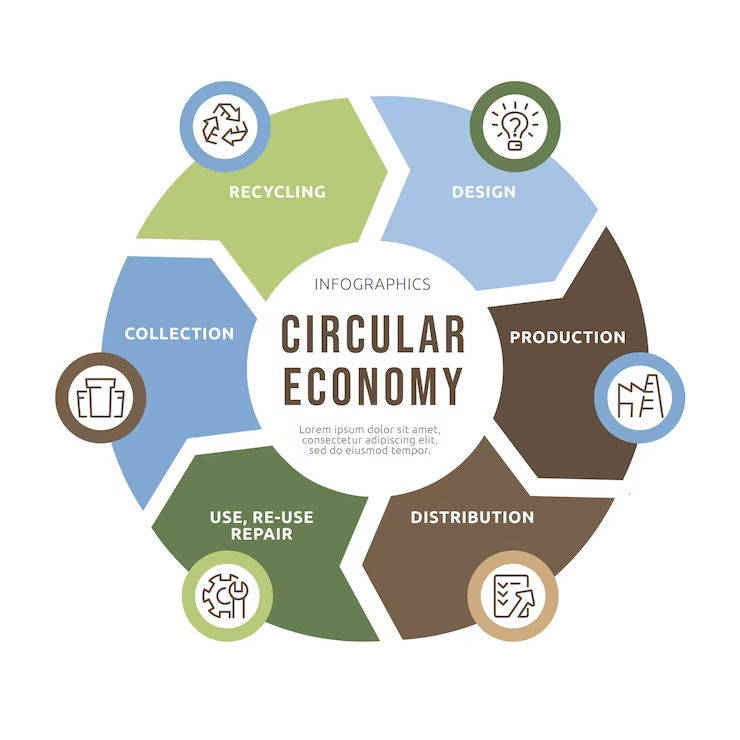
Organic waste, including food waste, is also a major issue. Organic waste, a significant producer of methane gas, is the most common waste in landfills in major cities in Kenya. It comprises 63.1% of total waste in Kisumu County and 60% in Mombasa County. Food waste comprises 49% of all waste in Uasin Gishu County.
In a circular economy, waste is considered a resource/ raw material. Recycling is the last resort. You take resources, manufacture products, and sell to consumers. Consumers repair and reuse the products, then manufacturers recover materials from the product that can be used to make other products instead of taking more resources.
You only produce residual waste in a circular economy. Residual waste is non-toxic waste that can't be further reused or recycled. It's sent to energy recovery facilities or disposed of.
Going circular calls for adopting a zero-waste culture from an individual and business level. All you need to do is start.
Starting a Zero Waste Journey in Kenya Is Possible
Both businesses and individuals can make greener choices to achieve a zero waste lifestyle in Kenya. Here are 15 easy ways to go zero waste in Kenya.
- Businesses can take advantage of green fiscal incentives in Kenya to promote zero waste production processes.
- Businesses can adopt circular production designs to reduce waste. For example, implementing takeback/ trade-in schemes, re-manufacturing, co-processing, using renewable energy, and offering after-sales services such as repairs, refurbishing, and acquiring back through a deposit system. Recycling is the last resort. Life Cycle Assessments (LCA) is vital in managing the process.
- Businesses should avoid unnecessary packaging. Naked packaging is acceptable as long as health and safety standards are met. If possible, avoid single-use plastic packaging. For example, bread manufacturers can opt for food-grade biodegradable wax-coated paper.
- Reuse, repair, gift/share items before recycling.
- Sort your waste.
- Send recyclables to a licensed and relevant recycler. Most recyclers have takeback bins in several locations. For example, the Waste Electrical and Electronic Equipment Centre (WEEE Centre) recycles electronic waste, and TakaTaka Solutions recycles plastic and composts organic waste. Chandaria Industries recycles waste paper to make tissue paper. There are also recycling drives within estates -for example, Kilicycle Collection Drive.
- Only buy what you need.
- If you can, buy in bulk. It saves you money and prevents excessive packaging from accumulating from small purchases.
- Plan your meals to avoid food waste.
- Cook/use old groceries first, after a restock.
- Rethink food scraps, as they can make a meal. You can make vegetable stock, for instance.
- Don't bin leftovers. Eat them or share them with someone.
- Compost your organic waste, i.e., brown waste (dry leaves, branches, grass clippings) and green waste (food scraps and fruit peels).
- Avoid single-use items. Opt for reusable ones - for example, reusable straws instead of single-use plastic straws.
- Don't take freebies at conferences if you don't need the item.
How Verte Environmental Solutions Promotes Low to Zero Waste Culture in Kenya
Verte Environmental Solutions promotes low to zero waste culture in Kenya in several ways:
- We advise our customers on how to reduce waste for their development projects through the Environmental and Social Management Plan (ESMP)
- We raise awareness on the need for a zero waste lifestyle through our online and offline platforms
- Our products are durable
- Our ecofriendly products are plastic-free, where possible. For example, bamboo toothbrushes have nylon bristles.
- Most of our products are reusable
- We also realize the need for disposables. Therefore, we provide ecofriendly disposables made from waste and composted at the end of life. Most importantly, we advise our customers to opt for disposables only when necessary.
- We teach our customers proper ways of handling the product at the end of life.
- We provide recycling information for our products and packaging
- We sell most products naked unless health and safety standards are compromised. In that case, we package them in kraft paper boxes.
- Some of our products are made from waste
Products Made from Waste
Waste is the raw material for some of our products. We endeavor to grow the portfolio. Let's take a look!
Product #1: Bagasse Tableware Made from Sugarcane Waste (Bagasse)
We sell a selection of bagasse tableware as alternatives to disposable plastic takeaway containers, plates, and cups.
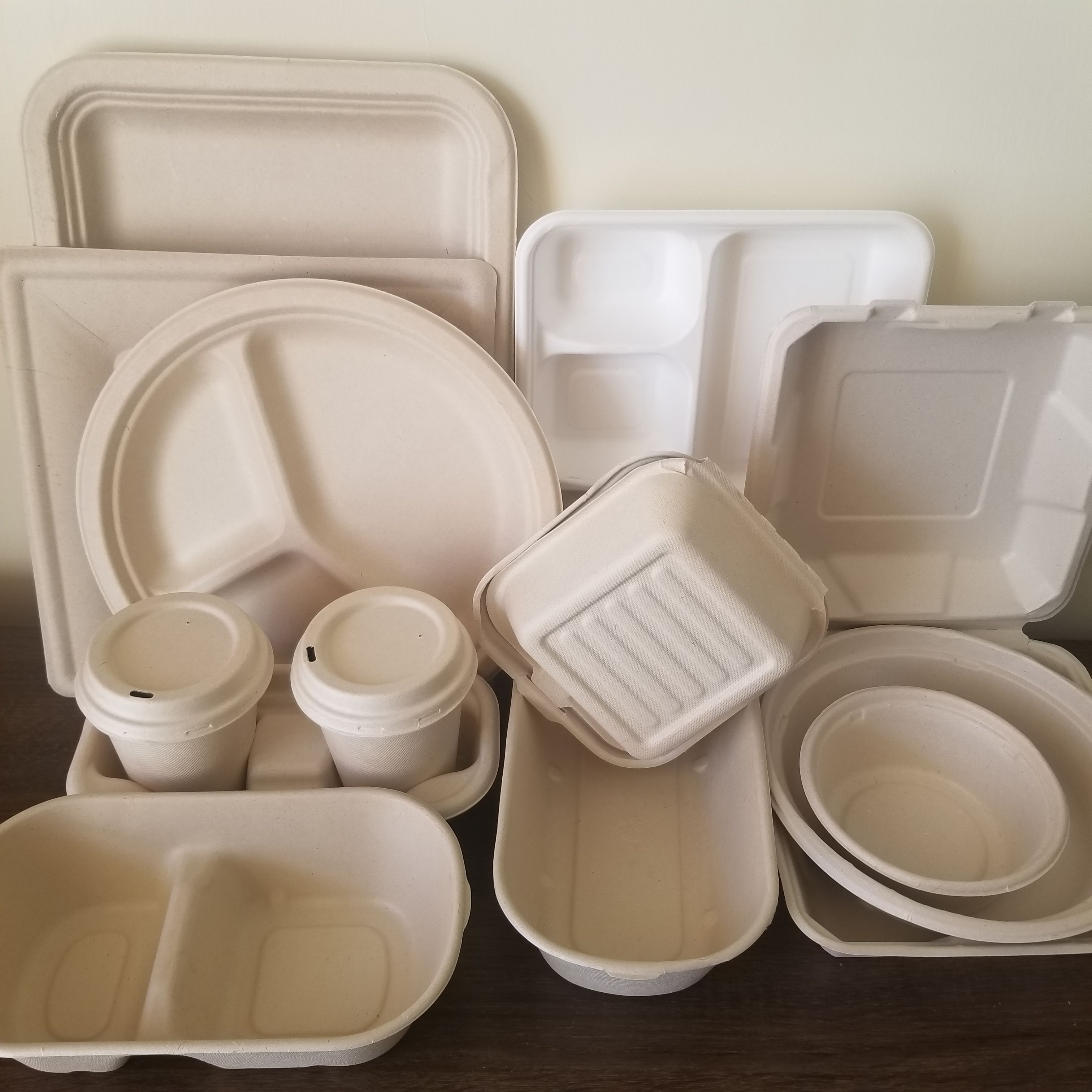
Bagasse is the fibrous waste produced after sugarcane stalks are crushed to extract juice for various purposes. In a linear economy, bagasse is sent to landfills, sometimes causing legal issues. For instance, the National Environment Management Authority (NEMA) ordered the closure of a bagasse dumpsite in Musali, Kakamega County.

In a circular economy, bagasse is a resource. Bagasse tableware is compostable. However, sending it to an industrial/commercial composter is best.
Product #2: Straw Pouches and Scruchies Made from Textile Offcuts
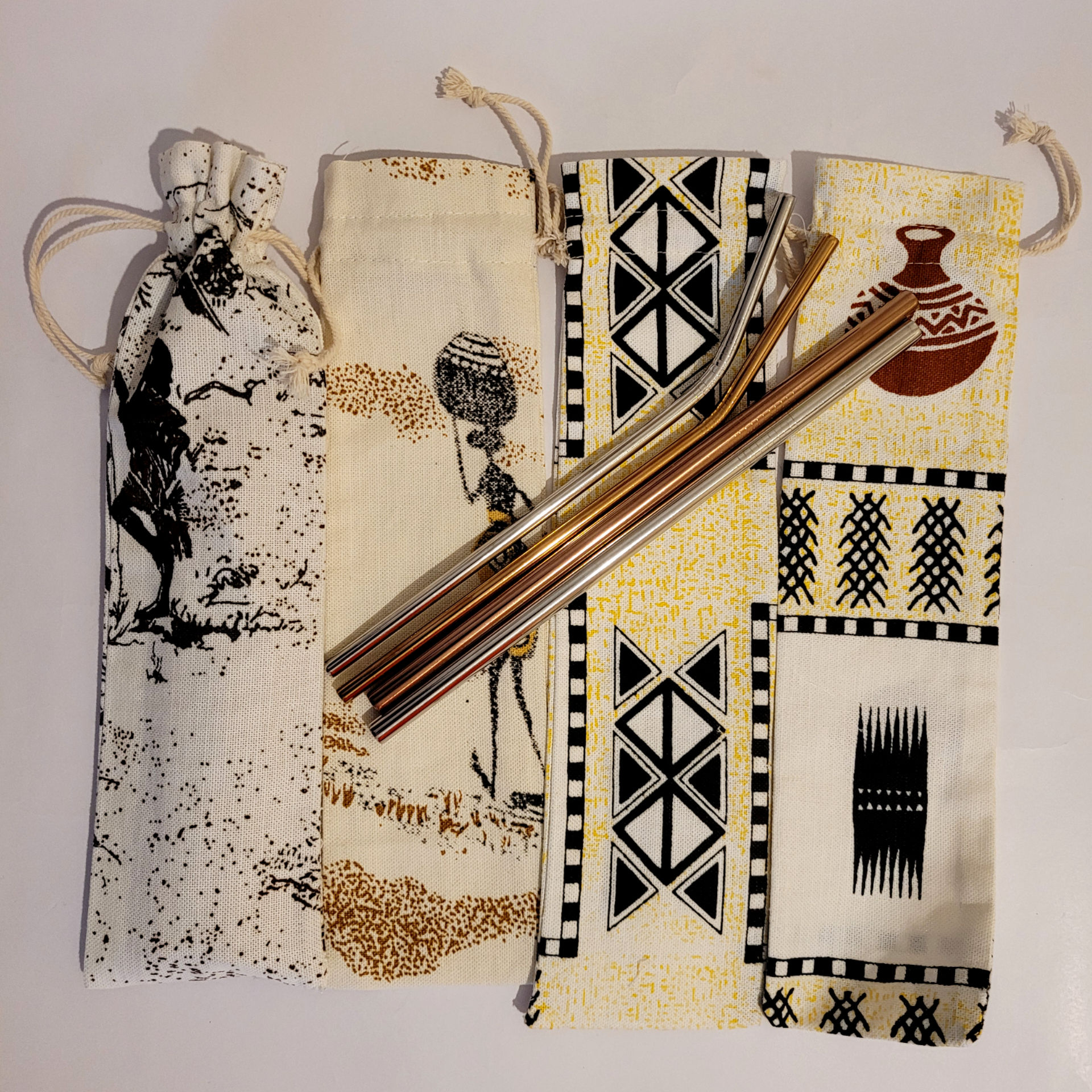
We sell reusable metal and bamboo drinking straws in different sizes- juice, smoothie, and boba. Our customers prefer a pouch to carry their sets.
Our reusable cotton straw pouches are made from textile offcuts after making tote bags and cushion covers. We also make hair ties from the fabric, selling them individually or used to decorate our gift packs.
At the end of life, customers can send the scrunchies and straw pouches to a textile recycler. In Kenya, Africa Collect Textiles (ACT) collects textile waste.
Product #3: Palm Leaf Plates Made from Sheaths of Fallen Areca Palm Leaves
Our palm leaf plates are great disposables for parties, team-building events, and conferences. Like we always say, reusables are the best option, but when you need disposables, choose ecofriendly.
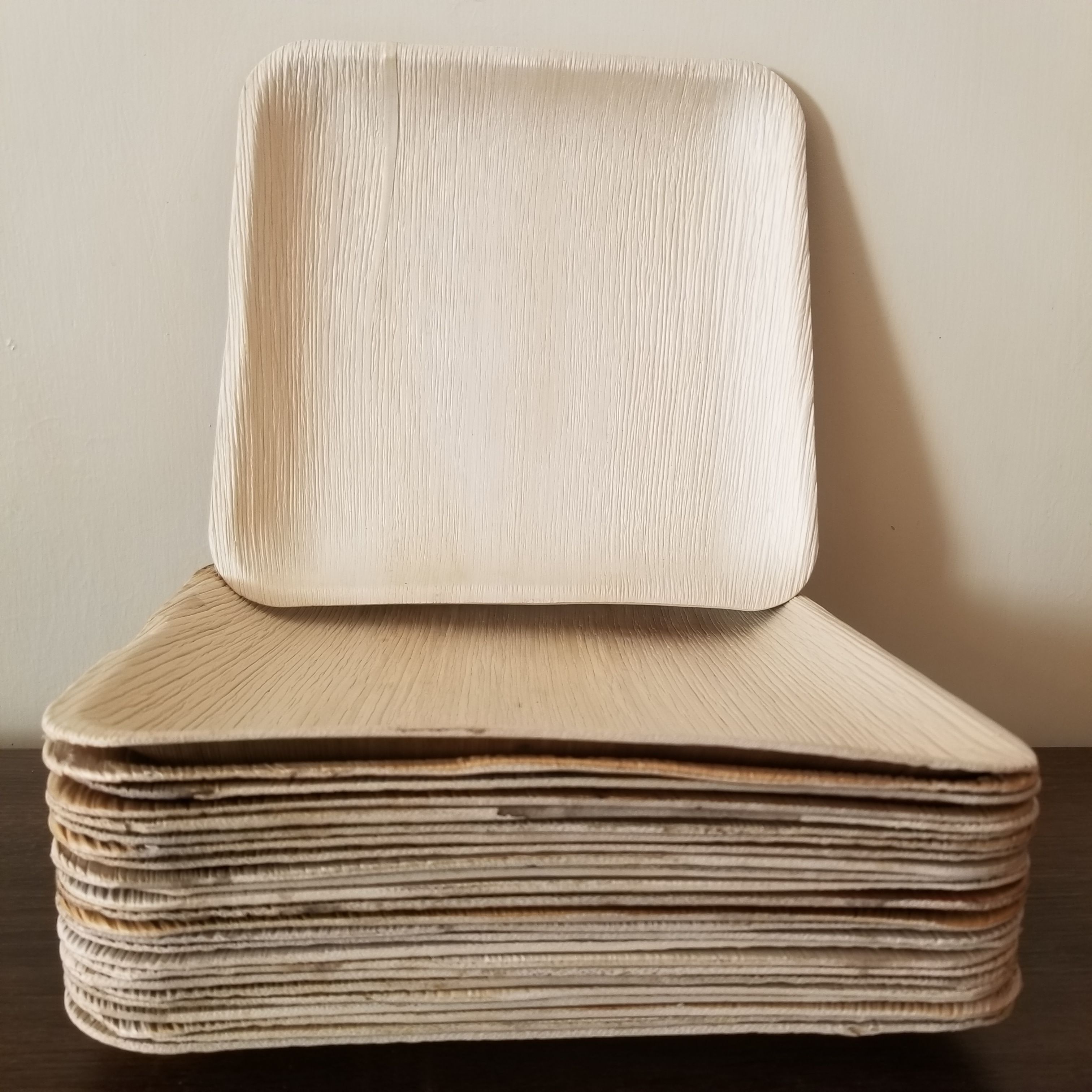
No palm trees are cut to make these plates. The tree sheds its leaves several times annually. The sheaths are collected, cleaned, sun-dried, then heat-pressed into shape.
Palm leaf plates can be home composted.
Product #4: Newspaper HB Pencils Made from Old Newspapers
There are several aftermarket uses for old newspapers in Kenya. Most commonly, they're used as packaging by local butchers.
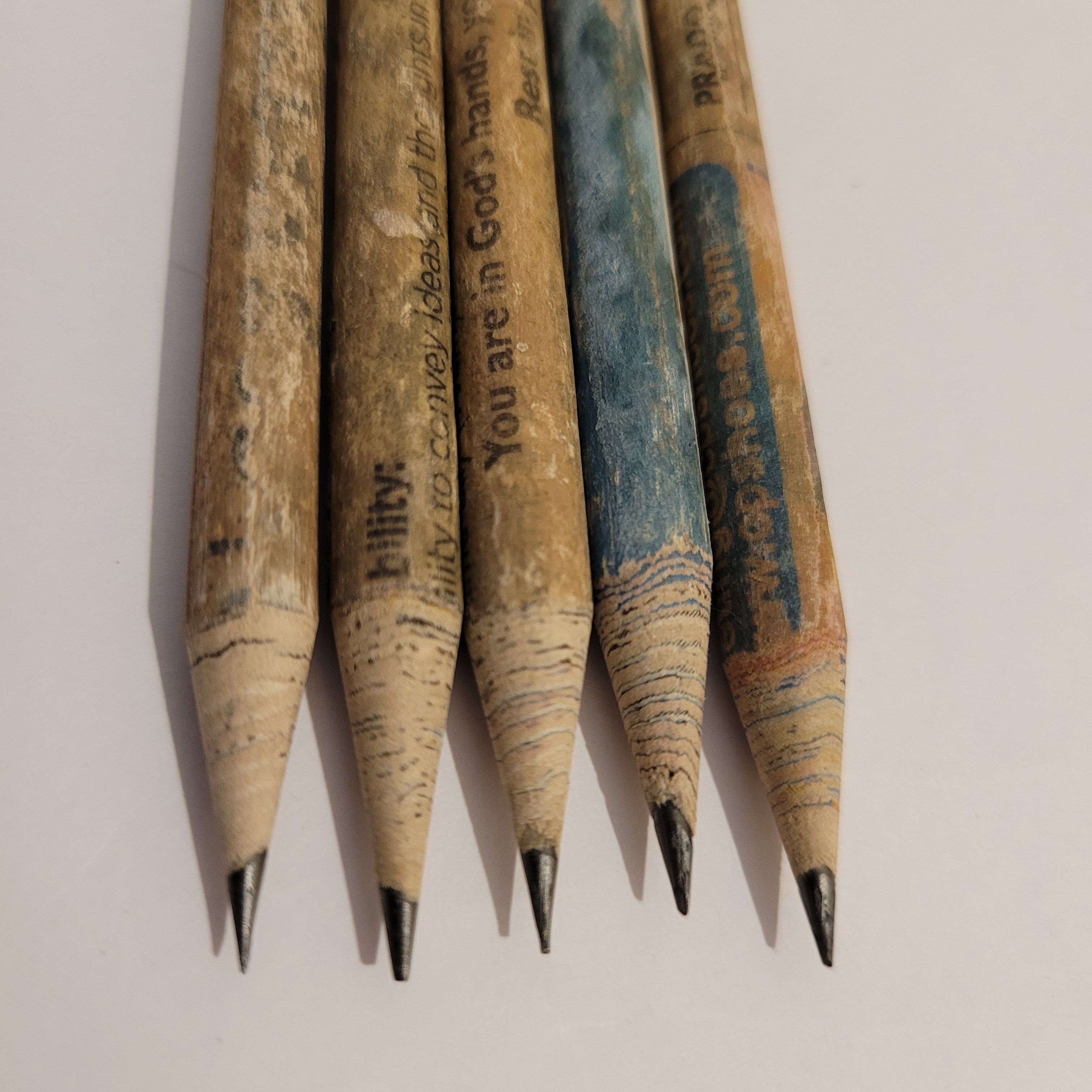
Old newspapers can also be used to make pencils, saving our forests. Newspaper pencils are good alternatives to wooden pencils.
The pencils and their shavings are composted at the end of life.
How's Your Zerowaste Journey Coming Along?
Have you started the journey? Do let us know how it is for you and your business. What are the challenges? How can we improve our nation, continent, and world?
Happy Zerowaste Day!
*Don't be mean. Be green*


